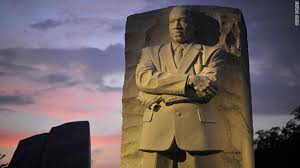 Grace,
Grace,  discipline
discipline  Monday, June 11, 2012 at 12:02AM
Monday, June 11, 2012 at 12:02AM  The best lies always use a bit of the truth. One of the weaknesses of giving ourselves seriously to spiritual formation is that after we understand the importance responding to God’s grace, it’s easy to get idea that God has done everything he’s going to do. The rest is up to me, we think. I must meditate, pray, serve, study, contemplate, isolate, and even celebrate on my own. Jesus showed me how it’s done, died on the cross, paid the price, and now it’s up to me to respond.
The best lies always use a bit of the truth. One of the weaknesses of giving ourselves seriously to spiritual formation is that after we understand the importance responding to God’s grace, it’s easy to get idea that God has done everything he’s going to do. The rest is up to me, we think. I must meditate, pray, serve, study, contemplate, isolate, and even celebrate on my own. Jesus showed me how it’s done, died on the cross, paid the price, and now it’s up to me to respond.
There’s a measure of truth to such thinking, but that’s where the lie takes hold. Truth is, the Father is willing to do still more on our behalf. God's grace is the disciple’s fuel for life.
James 4:6 reminds us: “But he gives us more grace. That is why Scripture says: ‘God opposes the proud but gives grace to the humble.’” More grace. Greater grace. All the more grace. James was speaking from experience, not theory. I think he discovered the multi-layered grace of God as he learned to humble himself again and again. When we humble ourselves we position ourselves for greater grace.
One sure indicator of a religiously closed mind is the firm conviction that we have this Jesus thing figured out. We can handle it. The religiously-closed mind is only interested in exporting its brand of spirituality, but it’s impossible to drink in God’s grace if we do nothing but tell others how to live. Self-discipline has great power, but it comes at the risk of locating the source of that power in ourselves instead of the grace of God. If will-power alone brings spiritual growth, we have no need for his daily presence. The distinguishing mark between grace-empowerment and fleshly self discipline is that self-discipline says to others, “If I do it, why can’t you?”
The grace-empowered disciple realizes the daily need for his presence. With that presence amazing things are possible. The Apostle Paul lived a disciplined and focused life before God, but he was a force of super-nature, not nature. The grace-empowered disciple says, along with the Apostle Paul (1 Corinthians 15:10), “By the grace of God I am what I am, and his grace to me was not without effect.” As we give ourselves this week to the spiritual disciplines laid out in scripture, let’s meditate as well on the source of our achievement in God.
 Thursday, June 7, 2012 at 10:39AM
Thursday, June 7, 2012 at 10:39AM  Sometimes just getting to my regular seat at church is a pain in the--well, it’s a pain. There are so many people I’d like to avoid. I love the church, but I don’t like the people in the church. Welcome to the True Confessions edition of Students of Jesus.
Sometimes just getting to my regular seat at church is a pain in the--well, it’s a pain. There are so many people I’d like to avoid. I love the church, but I don’t like the people in the church. Welcome to the True Confessions edition of Students of Jesus.
My usual seat is on the far side of the auditorium and there’s no way to it other than by passing by people I’d rather not talk to. Walk with me.
There’s The Gullible Guy: He’s never seen a Facebook post he didn’t believe, and he means to tell me about every one. There’s a secret government campaign to confiscate Bibles in America; there’s a new prophecy about Israel and the 2012 Euro Football tournament; Sesame Street is the Devil’s playground. If I try to point out the problems with each one of these revelations it will mean I’m part of the conspiracy. Plus I’ll miss the entire praise and worship portion of church. I move on.
Just a few feet away is The Blowhard: He’s memorized the entire book of Malachi. He chose Malachi because “Christians don’t understand that the Old Testament is the key to the New Testament.” When it comes to orthodoxy, it’s his way or the highway to Hell. He snags my arm because he read something on my blog that caused him to think I might be a Neo-Platonist Arminian Sycretizer. At least, that’s what I think he said because the band is into their second song and I still haven’t gotten to my seat. Plus my coffee’s getting cold.
I swing wide to avoid Miss LonelyHearts. Otherwise she’ll hug me and hold both my hands while she asks me about every member of my family. Some people say she’s just really empathetic, but it seems each question is more about prolonging the conversation than it is about whether my son’s team won their age-group community league soccer game. She seems nice enough, but I resist her brand of empathy because I suspect it’s really more about her than it is about me.
The path to my seat requires that I swing wide around The Flag Lady, who worships with her own set of color-coded worship banners: red for sacrifice, purple for royalty, and that gold one that always makes me think of the New Orleans Saints. I steer past The Prostrate-n-Kneeling Crew, who always seem to be deeply touched by every song. But my seat is in sight.
I still can’t sit down yet because The Homeschool Family is running a ferry service in and out of the aisle with their six children, all of whom have names that end in “-iah.” This is confusing because they all look identical as well. If I have to say their names, I usually cough when pronouncing the first syllable and then say the one syllable I know.
When I finally get to my seat, I find it’s taken. There’s a New Guy, about 30, long brown hair, dark eyes, and a beard. He’s just a little too old for the sandals and T-shirt look, but he apparently thinks he can pull it off. Church is crowded today, so I don’t even get the one-seat buffer that common courtesy demands. I nod toward the new guy, using my best Alpha-male look and take my place next to him. I’m finally ready to worship but the presence of the New Guy kind of cramps my style. I steal a look his way. I think he’s into the worship. He’s not super demonstrative but he’s grooving on the music in his own way.
At our church the band circles around for a soft landing by the end of the third song, but they keep playing quietly in the background as someone steps forward to present a scripture-reading. They throttle back and settle in with the mood music. The reader opens the Bible and raises the microphone to his mouth:
"In bringing many sons and daughters to glory, it was fitting that God, for whom and through whom everything exists, should make the pioneer of their salvation perfect through what he suffered. Both the one who makes people holy and those who are made holy are of the same family. So Jesus is not ashamed to call them brothers and sisters."
I look to my left at the new guy and something strange is happening. His hair seems even longer. The T-shirt has morphed into some kind of robe with a golden sash, and--I swear to God--he’s beginning to glow.
After he listens to this passage he leans toward me and says: “I love you, Brother. I’ve loved you through each stage of your life, including the rebellious stage, the doubting stage, the porn stage, the video-game stage, and the greedy stage. I’m not ashamed to call you my brother.” Then he gestured to everyone in the room and asked me “If I am not ashamed of you, why then, are you ashamed to call these people your family?”
 Monday, June 4, 2012 at 12:02AM
Monday, June 4, 2012 at 12:02AM  Part of his true beauty is that Jesus loves the unlovely.
Part of his true beauty is that Jesus loves the unlovely.
I’m drawn to him because he not only cleansed the lepers: he reached out his hand touched them even when everyone else demanded that they shout “Unclean!” He not only healed their skin, he received them kindly. I want that kind of heart.
When the male-dominated leaders of the day singled out a woman “caught in adultery,” (where was the other half of the adulterous duo?) Jesus did not condemn. Instead he challenged the very accusers with the now-famous words, “Let him who is without sin cast the first stone.” My heart is moved by mercy mixed with justice. I love him for speaking those words. I even love him for saying raising the woman to her feet and saying, “Go and sin no more” because it was the best thing for her.
I love Jesus because he reminded a synagogue filled with people bent on perfection that a bent-over old woman was also a daughter of Abraham. I love him because when Jesus dined with Zacchaeus it meant that he brought salvation to the house of a tax collector. I love him because a woman previously infested with seven demons was the very one he chose to first deliver the good news, “He is risen.”
Time and again Jesus demonstrated what he taught: mercy triumphs over judgment. I want to be like that.
Jesus taught me to to love the unlovely.
And because he taught me to love the unlovely, I love his bride: the church.
Shouldn’t we all?
 Thursday, May 31, 2012 at 12:02AM
Thursday, May 31, 2012 at 12:02AM  It’s so much easier to study about about Jesus than to be a student of Jesus. We face the constant temptation to fill our heads with the details of his life and ministry. Pastors and college professors emphasize the need to memorize Bible verses or learn Greek and Hebrew. Publishers produce massive volumes of systematic theology. Popular Christian books suggest Biblical keys to success for our finances, healing, or any other human need. But Jesus is not a system, he is a person.
It’s so much easier to study about about Jesus than to be a student of Jesus. We face the constant temptation to fill our heads with the details of his life and ministry. Pastors and college professors emphasize the need to memorize Bible verses or learn Greek and Hebrew. Publishers produce massive volumes of systematic theology. Popular Christian books suggest Biblical keys to success for our finances, healing, or any other human need. But Jesus is not a system, he is a person.
Perhaps we should give ourselves first to filling our hearts and lives with his presence. An omniscient God is not impressed with the size of our intellect, but he is impressed with the size of our heart. How can a finite human mind grasp an infinite God? St. Augustine, one of the greatest intellectuals in history, lamented that the “mansion of his heart” was too small and asked God to graciously enlarge his heart, not his mind. The Holy Spirit, who breathed out every word of the scripture, is not impressed with how many verses we have committed to memory, but he is impressed with how many verses have found their way into our everyday lives. Jesus didn't care much for religious knowledge, but he was astonished by the faith of simple people like widows and gentile soldiers.
Even though the Scripture encourages us, “Trust in the Lord with all your heart and lean not on your own understanding,” we are constantly tempted to pursue human understanding regarding the words of Jesus when we should pursue his living presence. Trust is about relationship, understanding is about intellect. In Jesus, God chose to become a man. The infinite stooped down and clothed himself in humanity. In his earthly ministry Jesus did not reveal all the secrets of knowledge and learning in human history. He chose instead to reveal how it was possible to enter into relationship with the creator. Jesus chose to reveal the Kingdom of God. By his actions, Jesus taught relationship is more important than understanding. We know this intuitively. We tend to forget it when it comes to our faith.
Faith does not require us to throw our brains into the trash. It does, however, require us to order our lives around what is most important, and relationship comes first. Jesus opened the way back to relationship with the creator. The good news of the gospel is that the Father has gone after the very children who have rejected him. He refuses to leave us alone. He will pay any price--even the life of son--in order to win us back again. That's a committed relationship in action.
Some of us have busied ourselves with developing human descriptions of God’s action. We discuss words like justification or sanctification. We try to present the legal reasons Christians can expect to go to heaven when they die. When Jesus paid the price for reconciliation, he wasn’t thinking about theology: he demonstrated God’s irrepressible love. Jesus described eternal life in terms of relationship with God: “Now this is eternal life: that they may know you, the only true God, and Jesus Christ, whom you have sent.” (John 17:3)
In Jesus are "hidden all the treasures of wisdom and knowledge." (Colossians 2:3) We are commanded to love the Lord our God with all our hearts, mind, and strength, so we can confidently apply our intellect in the love of God. We should also remember that the countless of number of people from every tribe, tongue, and nation who will worship him in heaven will certainly include the unlearned and the illiterate--and they may have a thing or two to teach us about a loving relationship with Jesus.
The challenge for us as Students of Jesus, then, is to know him, and not settle for knowing about him.
 Monday, May 28, 2012 at 12:02AM
Monday, May 28, 2012 at 12:02AM  Photo Credit: Angie Hill, http://www.angiehillphotography.com/Once there was a baby both brilliant and proud. He was brilliant because he grasped human language at just three weeks of age. Indeed, he could talk at six weeks. But he didn’t talk, because he was proud.
Photo Credit: Angie Hill, http://www.angiehillphotography.com/Once there was a baby both brilliant and proud. He was brilliant because he grasped human language at just three weeks of age. Indeed, he could talk at six weeks. But he didn’t talk, because he was proud.There, at the institution, the night nurse fell asleep while reading at her desk, but not before underlining these words by the author: "A man can no more possess a private religion than he can possess a private sun and moon."
What meaning do you assign to this story? I’d love to know.